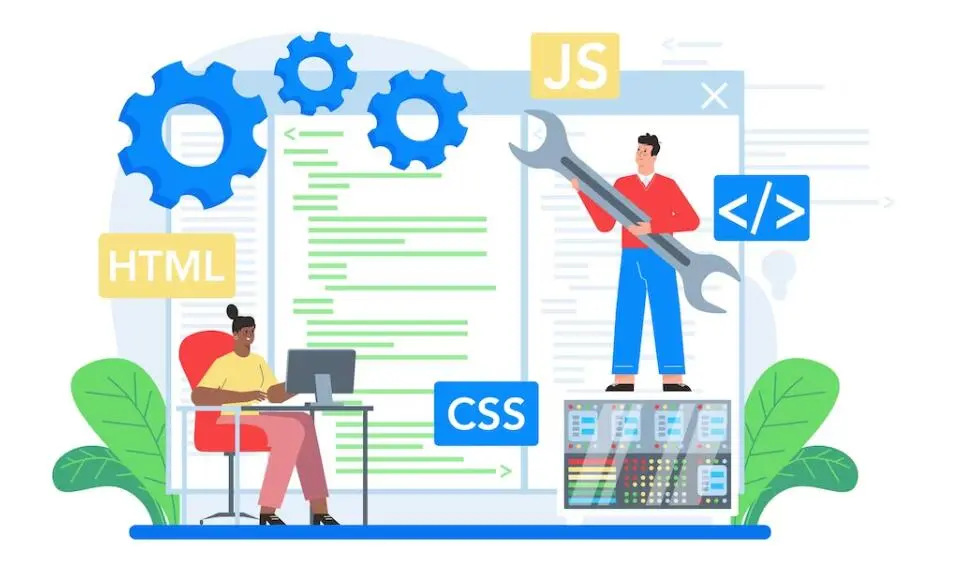In today’s fast-paced technological landscape, the proficiency of coding and programming has transformed from a specialized skill to a nearly ubiquitous necessity. As education continues its seismic shift towards the online sphere, there emerges a pressing demand to assess coding knowledge effectively in this new digital domain.
Table of content
- Part 1: 6 Effective Online Coding Knowledge Assessment Ideas
- Part 2: OnlineExamMaker: Free Online Coding Knowledge Assessment Platform for Schools & Companies
- Part 3: How to Make A Coding Knowledge Assessment with OnlineExamMaker?
Traditional Assessment Vs. Online Assessment
Historically, assessments in the realm of programming often took the shape of written exams or hands-on projects, evaluated within a physical classroom. While these methods have their merits, they lack the scalability and adaptability offered by online methodologies. Online assessments not only cater to a wider audience but also provide instant feedback, automated grading, and a plethora of other benefits. However, they come with their own set of challenges, such as ensuring academic integrity and replicating the practical aspects of coding.

6 Effective Online Coding Knowledge Assessment Ideas
Idea #1: Multiple-Choice Quizzes & Puzzles
At first glance, multiple-choice quizzes might seem too simplistic for something as intricate as coding. However, when devised correctly, they can effectively gauge a learner’s understanding of algorithms, logic, and coding concepts. Tools like Google Forms or Quizlet can assist educators in creating and grading these quizzes. To ensure their effectiveness, questions should be diversified, encompassing code comprehension, error spotting, and output prediction.
Idea #2: Timed Coding Challenges
Platforms like HackerRank, LeetCode, and Codewars offer timed challenges that test both an individual’s coding proficiency and their ability to produce solutions under pressure. Such assessments mimic real-world scenarios where developers often work against the clock. The dual assessment of knowledge and speed can provide a holistic view of a student’s capabilities.
Idea #3: Peer Reviews & Code Critiques
Coding, contrary to popular belief, is as much a communal activity as it is an individual one. Collaborative learning through peer reviews provides students with diverse feedback, helping them understand different approaches to the same problem. In an online setting, forums or platforms like GitHub can facilitate code sharing and reviews. This method not only assesses a student’s coding skills but also their ability to critique and provide constructive feedback.
Idea #4: Project-Based Assignments
True mastery in coding is often reflected in practical application. Assigning projects—whether it’s building a simple website, a game, or a data analysis tool—can give students a platform to showcase their comprehensive skills. Grading can be streamlined with well-defined rubrics, breaking down the assessment into components like code efficiency, functionality, and design. Platforms like Repl.it provide an online space for students to code, share, and submit their projects.
Idea #5: Live Coding Interviews
Merging the traditional approach of interviews with modern online tools can result in highly effective assessments. Platforms such as Pramp or interviewing.io offer simulated live coding interview environments. These interviews not only test coding knowledge but also assess problem-solving skills in real-time. For educators and recruiters, this method offers deep insights into a student’s thought process and adaptability.
Pro Tip
You can build engaging online quizzes with our free online quiz maker.
Idea #6: Automated Code Review Tools
While human intervention in assessment is invaluable, the automation of code quality checks can greatly enhance the process. Tools like SonarQube or CodeClimate scrutinize code for potential issues, ensuring adherence to best practices. Integrating such tools in assessments can provide objective metrics on code quality, efficiency, and maintainability.

The Role of Continuous Feedback in Online Assessments
Feedback loops are the backbone of effective learning. Especially in online settings, students crave regular and actionable feedback. Tools like Microsoft Teams or Slack can be utilized for instant communication. Continuous feedback not only points out areas of improvement but also motivates and guides students towards better performance.
Challenges of Online Coding Assessments
Like all systems, online assessments have their challenges. Plagiarism is a significant concern, with countless online resources at a student’s disposal. Tools like MOSS (Measure of Software Similarity) can help detect copied code. Internet connectivity issues can disrupt assessment experiences, necessitating flexible deadlines and offline-compatible tools. Ensuring fairness, especially in diverse student groups with varied access to resources, is also paramount.
OnlineExamMaker: Free Online Coding Knowledge Assessment Platform for Schools & Companies
OnlineExamMaker is a comprehensive online software solution designed to simplify and streamline the entire process of conducting assessments, tests, and exams. The tool empowers recruiters, educators, and HR professionals to efficiently manage and administer coding knowledge assessments, saving time and resources while ensuring accurate evaluation of candidates and learners.
Key Features:
Randomizable question bank: System will randomize questions and shuffle answer options. Each time someone starts an exam, the system automatically randomizes the questions from the question bank.
Historical Test Results: Keep track of your past speed test results to monitor changes in your network’s performance over time.
Customizable Test Settings: Tailor your speed tests by choosing specific servers, test durations, and connection types to suit your needs.
How to Make A Coding Knowledge Assessment with OnlineExamMaker?
Step 1: Get started with OnlineExamMaker platform.
Step 2: Edit coding questions in the Question Editor, or bulk upload an Excel file to OnlineExamMaker question bank.
Step 3: Create a new coding assessment, then modify quiz settings.
Step 4: Make the coding quiz live, then share it to candidates.
Create Your Next Quiz/Exam with OnlineExamMaker
Conclusion
The digital age demands the evolution of assessment techniques to cater to its nuances. The online methods discussed, from multiple-choice quizzes to live coding interviews, offer a spectrum of opportunities for educators to gauge coding prowess effectively. While challenges persist, continuous innovation and adaptability remain key in ensuring that the assessment methodologies remain effective, inclusive, and fair.